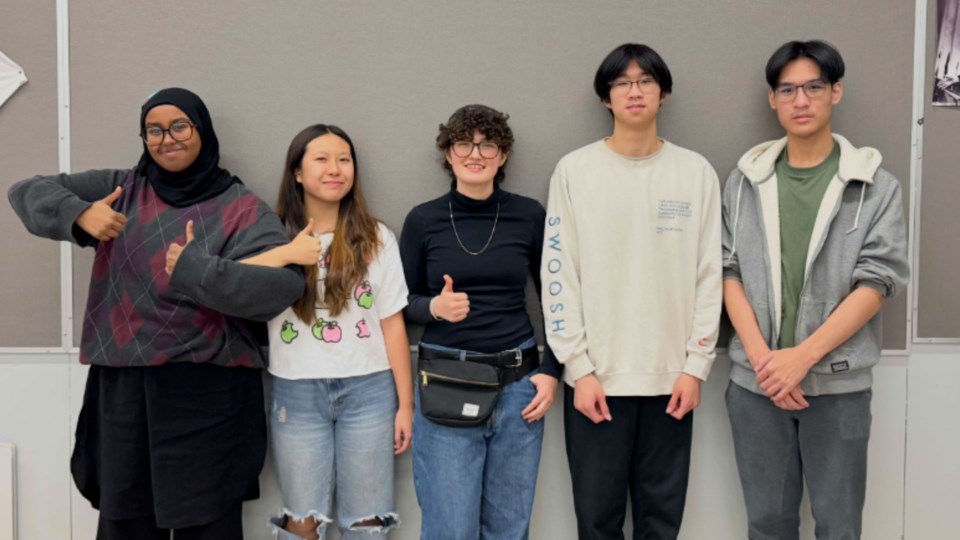A group of Richmond Grade 12 students are campaigning to have more social media regulations to benefit the health and safety of youth in Canada.
Hugh Boyd Secondary's student equity committee is focusing on the negative mental health effects social media has on the younger generation through its Take Back the Algorithm campaign.
Social media use in teenagers has had "detrimental effects" on sleep, anxiety, depression, loneliness and social isolation, according to student committee members Macy Mercado and Ryan Monaghan.
Since the start of the campaign last year, the students have called on the federal and provincial governments to look into social media regulations to improve youth mental health and protect them against potential tragic outcomes.
This included coming up with policy proposals to restrict personal data in algorithmic recommendations for youth ages 16 and under and enhance algorithmic transparency.
So far, the committee received three endorsements on their campaign from the Amanda Todd Legacy Society, Exploitation Education Institute and former Blackberry CEO and billionaire philanthropist Jim Balsillie on behalf of his organization the Centre for Digital Rights.
"As students, we basically grew up with technology in a way where we didn't have any tools or any idea of how involved it could become in our lives," said Mercado.
"We want to bring attention to social media and ways to reduce how much time (youth) spend on it, and not let social media habits take control of us."
The Grade 12 students, including campaign members Sian Martin, Jason Wang, and Layla Abdi Hadi, have written an open letter to Prime Minister Trudeau, started a Change.org petition and created tools for youth to distance themselves from social media dependency.
Monaghan added while there are students who are constantly on their phones, they are also aware of students who are not part of their campaign or their student committee who are also talking about setting timers on their apps or being on "focus mode" to focus more on their day-to-day life.
"We hear a lot of people genuinely caring about this ... but it's an uphill battle for a lot of teenagers just because of the way the algorithms and social media companies have designed (apps)," they said.
During a podcast interview, the Hugh Boyd students spoke with Dr. Ravi Lyler, a former Meta employee turned moral psychologist, on how algorithms use psychology as a foundation to "make their platforms more addictive."
"It was a really interesting perspective from someone who used to work in a social media parent company," said Monaghan.
"There's a lot of (secrecy) and a lot of harm that the algorithms can do and we think that it would be very important for companies to be clear about the way they use algorithms," they added.
These harms include misinformation or extremely negative and harmful information on social media apps.
"Sometimes creators will promote really negative or aggressive ... ideologies and many people latch onto them -- some growing up with misogynistic kinds of views," they added.
"A lot of kids who are really young could get roped into these ideologies that they don't really know the meaning of yet."
Monaghan and Mercado suggested governments find a way to focus on "boosting and uplifting positive and education content" as opposed to posts that are "for the clicks and interactions."
The students are also asking the government to have bi-annual reports about the effects of social media on radicalization, youth mental health and the mental health of everybody.
"We think it's important for people to know what could happen and what might be actively happening to them even in that moment."
📣 Got an opinion on this story or any others in Richmond? Send us a letter or email your thoughts or story tips to [email protected].
📲 To stay updated on Richmond news, sign up for our daily headline newsletter.
💬 Words missing in article? Your adblocker might be preventing hyperlinked text from appearing.



